BY MICHELLE LEMEUR, DEBOLEENA RAKSHIT, OLIVIA GAO, JOHAN ZAMBRANO
Michelle LeMeur, Deboleena Rakshit , Olivia Gao, and Johan Zambrano are second-year International Development students who traveled to Nepal to explore employment challenges in the country. The team was working with Winrock International.
The IDEV Practicum allows students to work directly with public, private and non-governmental organizations as a capstone to their graduate studies. The IDEV Practicum Blog chronicles the travels of IDEV students who take on client projects over winter break.
Waking up at 6:00 AM to catch the sunrise over Mount Everest isn’t what had we planned on doing when we signed up for the IDEV Practicum, but this January it was exactly how we found ourselves. For two weeks, four of us were in Kathmandu to work with the “Hamro Samman” team of Winrock International to conduct a landscape assessment of ethical recruitment practices in Nepal as well as to evaluate the feasibility of an online jobs platform in addressing some of the employment challenges in the country. Not only did we gain real-world research experience, but we also managed to see some unexpected sights and meet some wonderful new acquittances.
For Nepalis, foreign employment offers a pathway towards greater economic opportunities. Unfortunately, the foreign employment supply-chain often offers relatively little information, exposing prospective jobseekers to a greater chance of trafficking. The research aims to elucidate what processes are at play in the Nepali labor supply and will hopefully be used to develop a tool to reinforce migration as a choice for Nepalis. The field research component of our project involved interviewing multiple key stakeholders, including international organizations working in fair recruitment like the International Labour Organisation (ILO), civil society organizations working with migrant and returnee migrant workers like the Same Migration Initiative (SaMi) and National Network for Safe Migration (NNSM), and employers in the construction and electronics sectors.
The two weeks we spent in Nepal were extremely helpful in validating some of our initial desk research, but it also led to some interesting new findings. We were surprised to learn about the important role of returnee migrant workers who serve as ’social mobilizers’ in their own communities as well as awareness of ethical recruitment practice. This dynamic can help build local trust in government policies from the bottom up. Nearly all stakeholders also emphasized the importance of word-of-mouth networks and personal relationships within the labor market. This understanding will help us design a business strategy that incorporates existing systems and norms within Nepal. We will continue to analyze the responses from our field interviews and also conduct follow-up meetings with additional stakeholders and our client over the next few months.
Given the disruptions expected to affect the world of work like rapid technology adaptation, climate change, demographic transitions, and political instability, we believe the issue of ethical recruitment will continue to grow in significance in the coming years. Having had the opportunity of observing firsthand the challenges a source country faces in sending migrant workers abroad, while trying to retain talent for the domestic labor market, has been invaluable in informing our research and understanding of employment issues more broadly. Our next challenge requires that we come up with a solution to adapt an online job platform to the Nepali job market’s unique challenges, which include low literacy, high unskilled and low-skilled supply, and gender differences.
Luckily, we managed to mix work with play throughout our time in Kathmandu. We spent our weekdays weaving through Kathmandu traffic on our way to meetings and lunches at the city’s many amazing cafes like Red Mud and Himalayan Java (Pro tip: Nuwa Estate coffee is absolutely delicious and ethically sourced. Highly recommended by our team.) Our two weekends were dedicated to checking out the sights within Kathmandu like the famous Pashupatinath and Boudhanath Temples, the Hanuman Dhoka Durbar Square, and the farmer’s market that sold everything from giant momos to raw honey. We also managed to get out of town to spend a night in nearby Nagarkot where aside from seeing a beautiful (if cloudy) sunrise, we also had the pleasure of sitting by a bonfire and snacking on ginger-honey-lemon tea and wai wai sandekho and momos.
To read about the work that other IDEV Practicum teams did this year, visit this page.
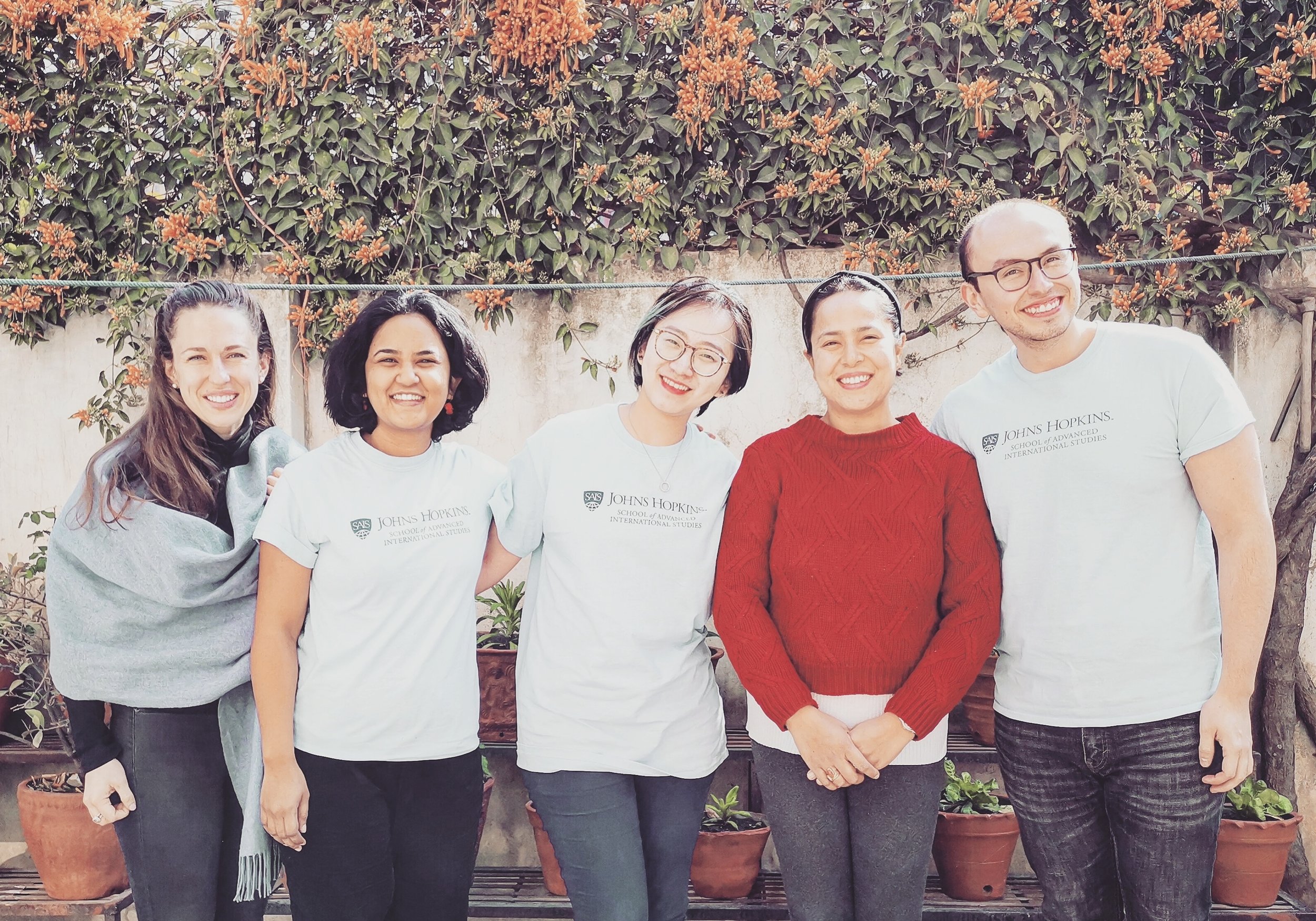
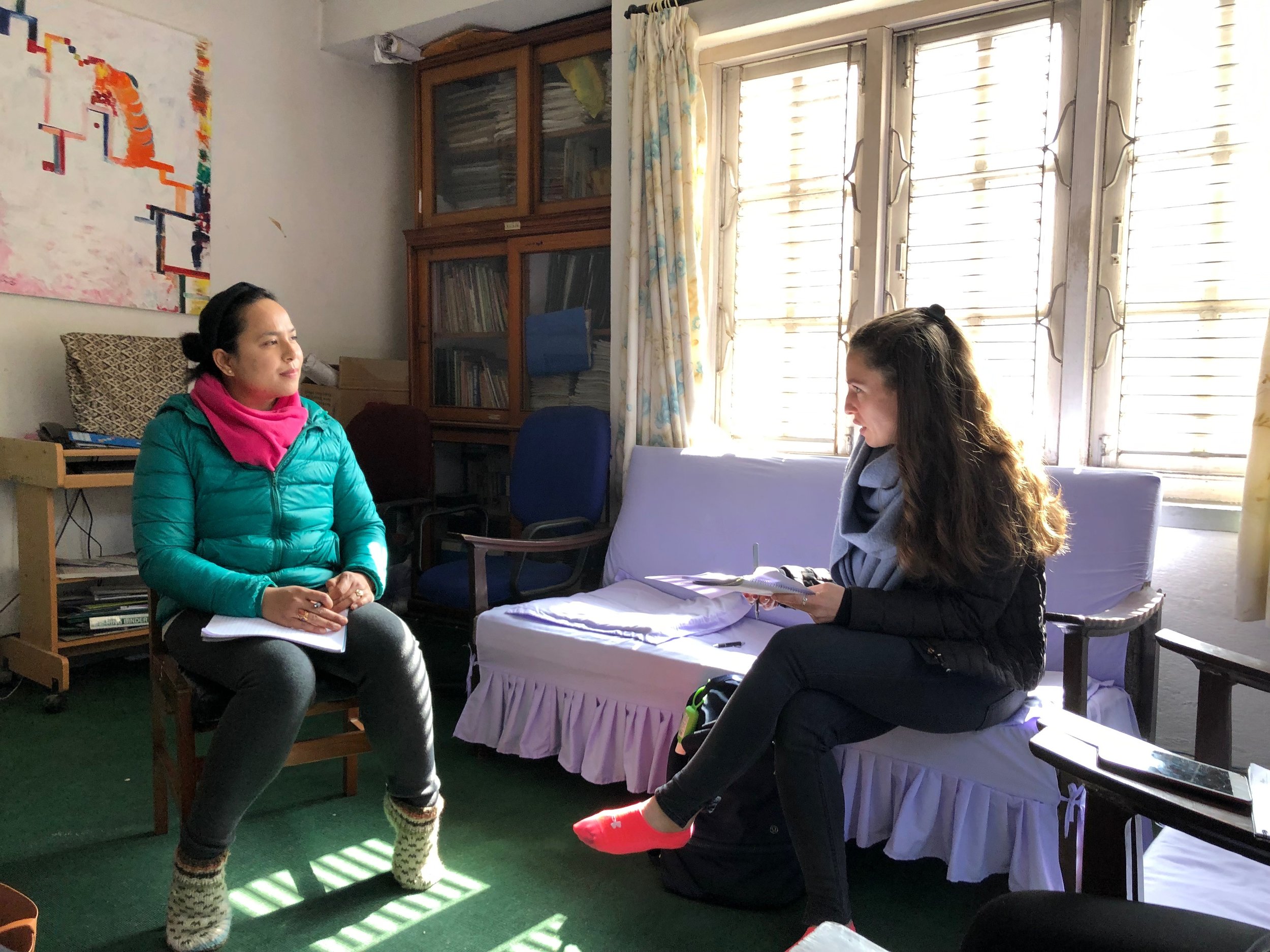
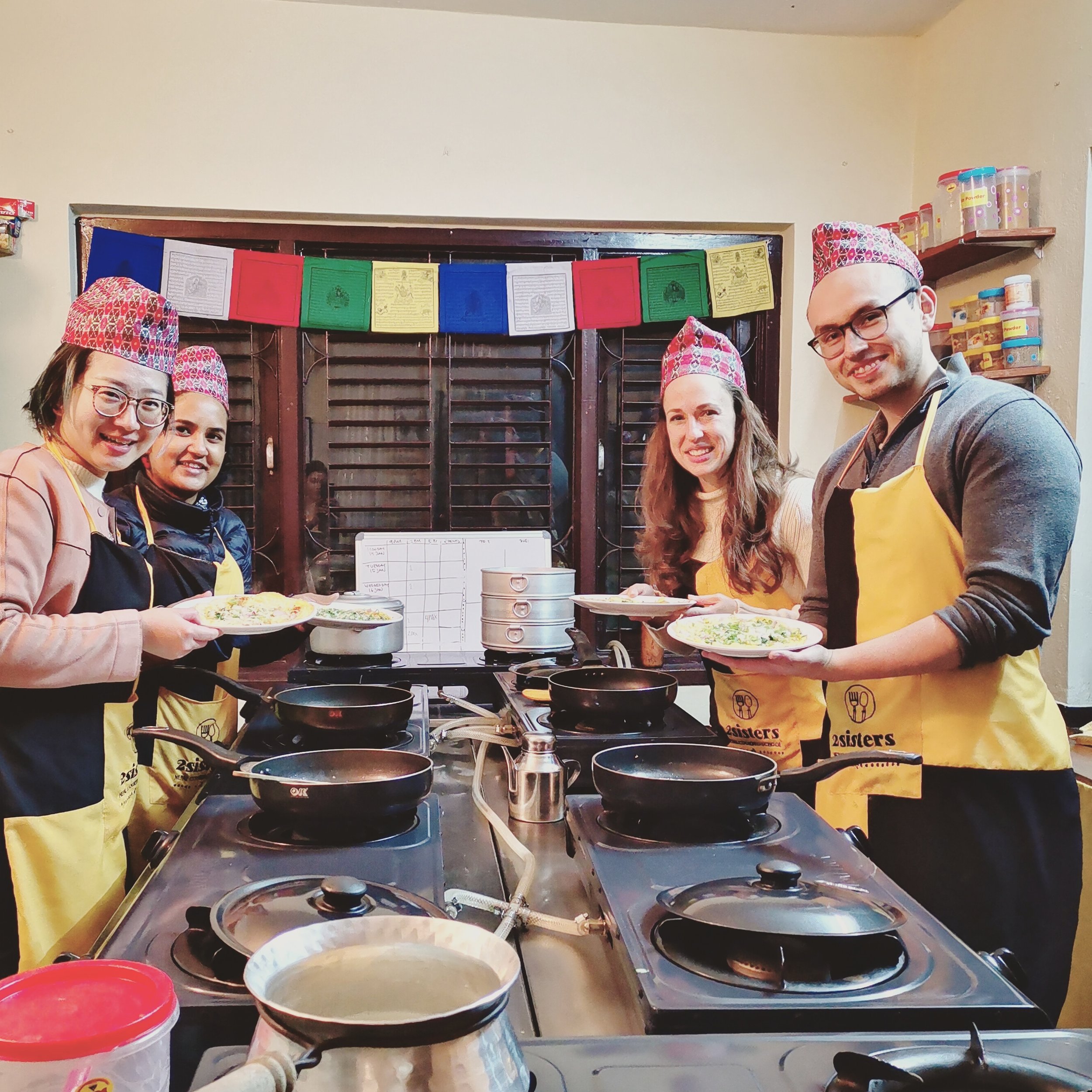
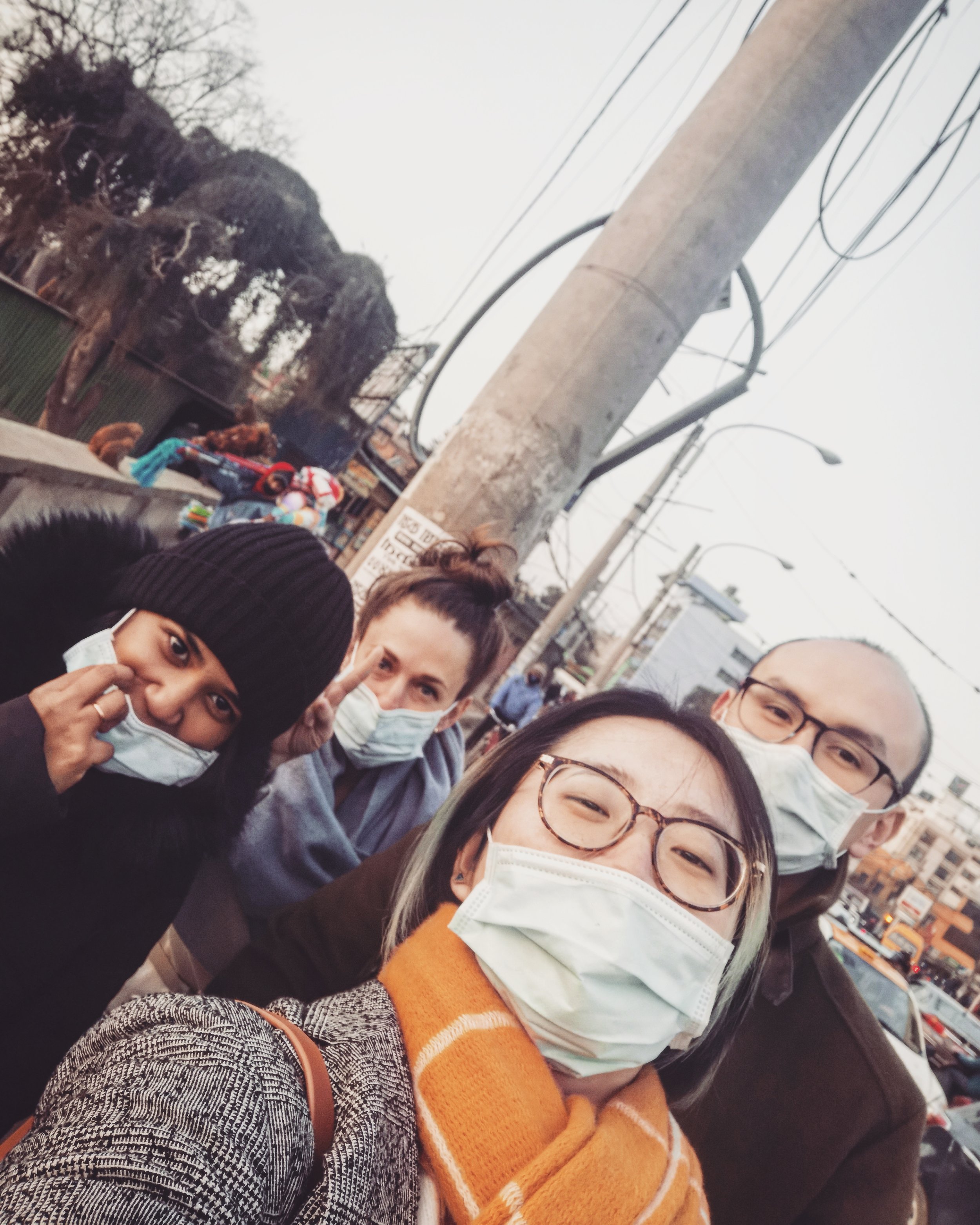
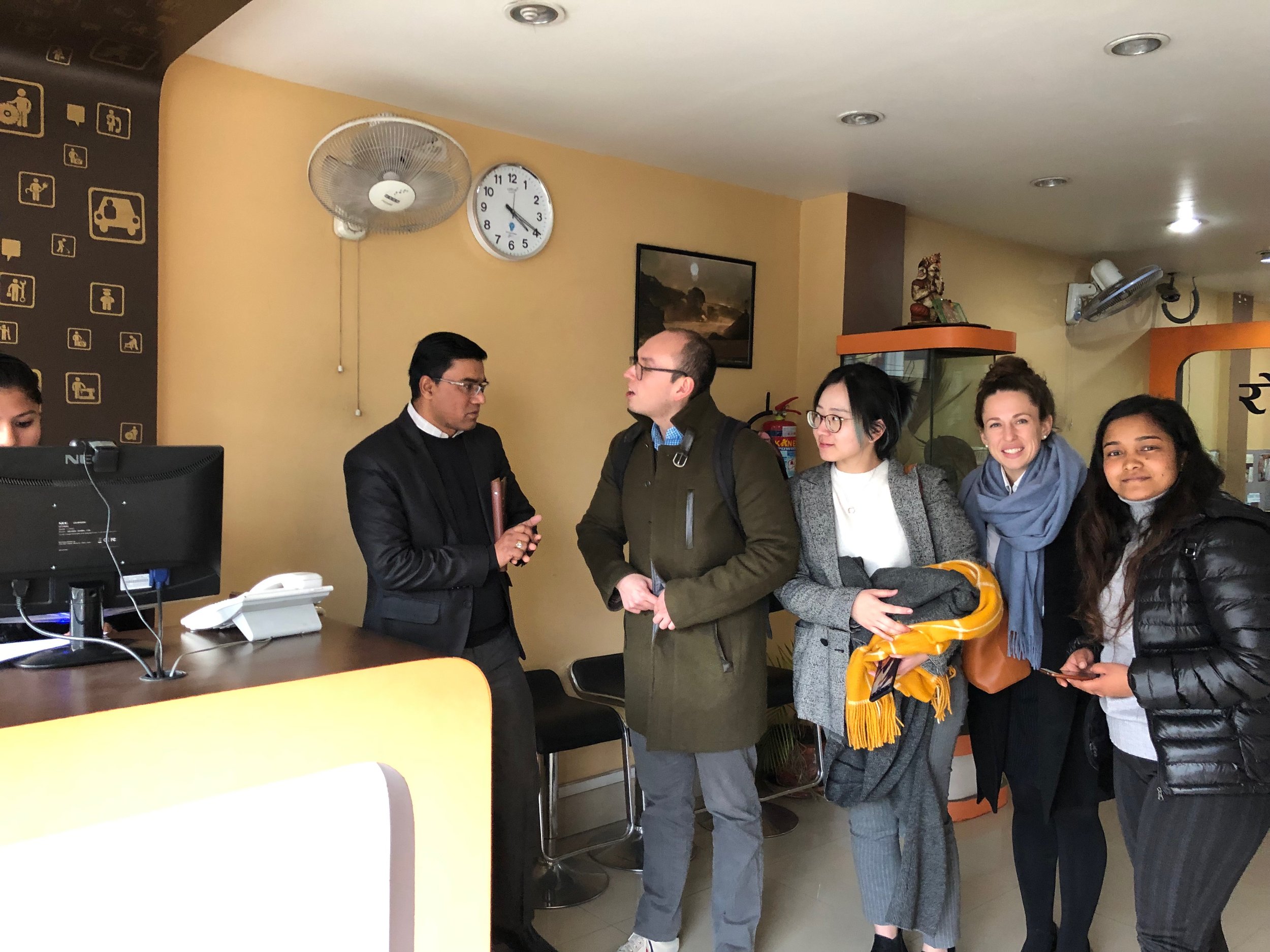
PHOTO CREDITS: Michelle LeMeur, Deboleena Rakshit ,Olivia Gao and Johan Zambrano

